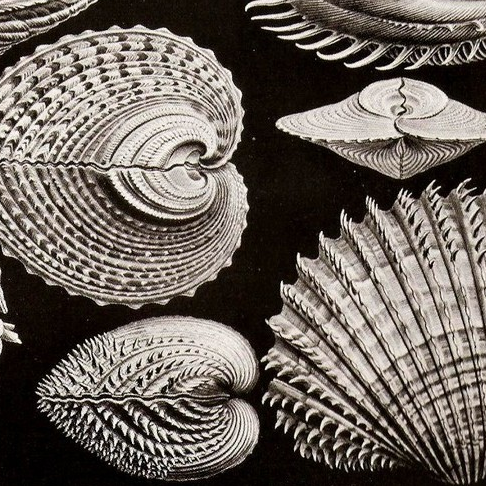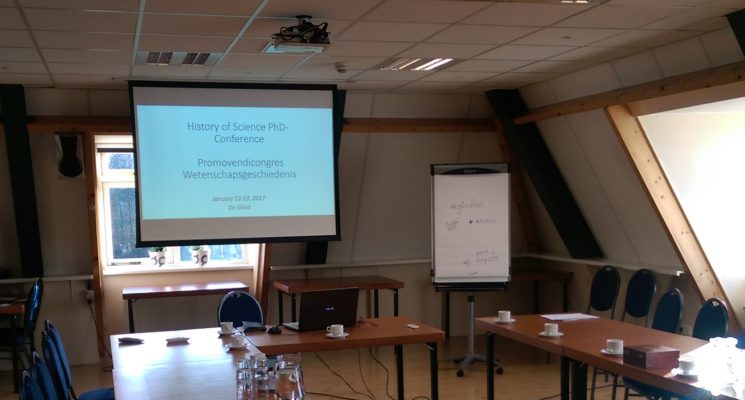The History of Science PhD-Conference at De Glind is the successor of the biennial conferences at Rolduc. Two years ago, Hans Schouwenburg noticed a remarkable diversity of topics in his report of the Rolduc gathering. A great variety again characterized this year’s meeting. This was clearly reflected in the different backgrounds of the participants. Though a fair share of them were historians, other disciplines were well represented as well. There were representatives of both faculties of science and social sciences, while the representatives of the humanities included even art historians and philosophers.
With such a diverse group of attendees it was not surprising that the participants aimed to go beyond traditional efforts to sketch the history of a particular field of scholarship in a number of ways.
Post-disciplinary history of science?
One recurring theme was the call for a post-disciplinary approach to the history of science. Pleas for post-disciplinarity showed in different guises. Some participants argued for an emphasis on the transfer of knowledge between disciplines rather than on one-directional disciplinary narratives. Others focused on the ideals and desires shared by scholars across disciplines. Questions about what constitutes a proper object of knowledge also cross disciplinary boundaries, as case studies about the history of dark matter and latent variables in psychology (such as IQ) suggested. The discussions that followed suggested that the notion of post-disciplinarity might provide a common starting point for a wide range of approaches. These approaches include, but are not limited to, an emphasis on communication and knowledge flows, an investigation into scholarly practices, a focus on scholarly personae and self-fashioning, and a close look at what constitutes a proper object of knowledge.
Leaving the ivory tower
Another way to go beyond traditional disciplinary history is by giving credit to the work of people outside of university circles. One presentation, for example, zoomed in on the illustrations that publishers added as reading aids to books on natural history around 1500. Another participant emphasized the importance of fishermen and fishmongers in the collection of data for early modern ‘fish books.’ The field of social psychiatry was also presented as a specialization that could only take shape through interactions between scientists, (local) authorities and church charities. Through such examples the speakers showed the limits of the old metaphor of the university as an ivory tower: without the countless contributions of non-scientists, the history of science would have been very different. These papers about some of the unsung heroes of the history of science invite the historian of science to explicitly acknowledge their sometimes too easily forgotten contributions to scholarship.
Ethics and morality
Another recurring topic was the question of morality and the ethical questions arising out of research. This question took central stage in the assessment of the historical and institutional development of animal testing practices. It also lies at the heart of the investigation of the role of ethics committees overseeing human experimentation: are they mainly bureaucratic nuisances to alleviate institutional responsibility or should they primarily of interest as epistemological filters? A completely different set of ethical questions can arise out of the relationship between citizenship education and public morality. Touching back on the interaction between society and the universities, one talk discussed valorization. Today the need for the valorization of research is often presented as a relatively new demand. A look at the past shows that the struggle to combine epistemic and societal responsibilities has been an unavoidable challenge for universities for a long time. The opportunity to assess such moral and ethical issues is one of the most attractive promises of a history of science that does not limit itself to isolated stories about the progress of separate disciplines.
Conclusion
Some of the liveliest discussions at De Glind arose around the promises of post-disciplinarity and the possibility of a lasting fruitfulness of disciplinary histories. It was at these moments that even some of the most ardent post-disciplinarians realized that we should also be careful to not throw away the child with the bathwater. There is a lot to learn from traditional histories of scholarly disciplines. Time will tell to what extent the young scholars who gathered at De Glind will be able to connect old wisdom with new approaches, but the first signs are indeed promising.

